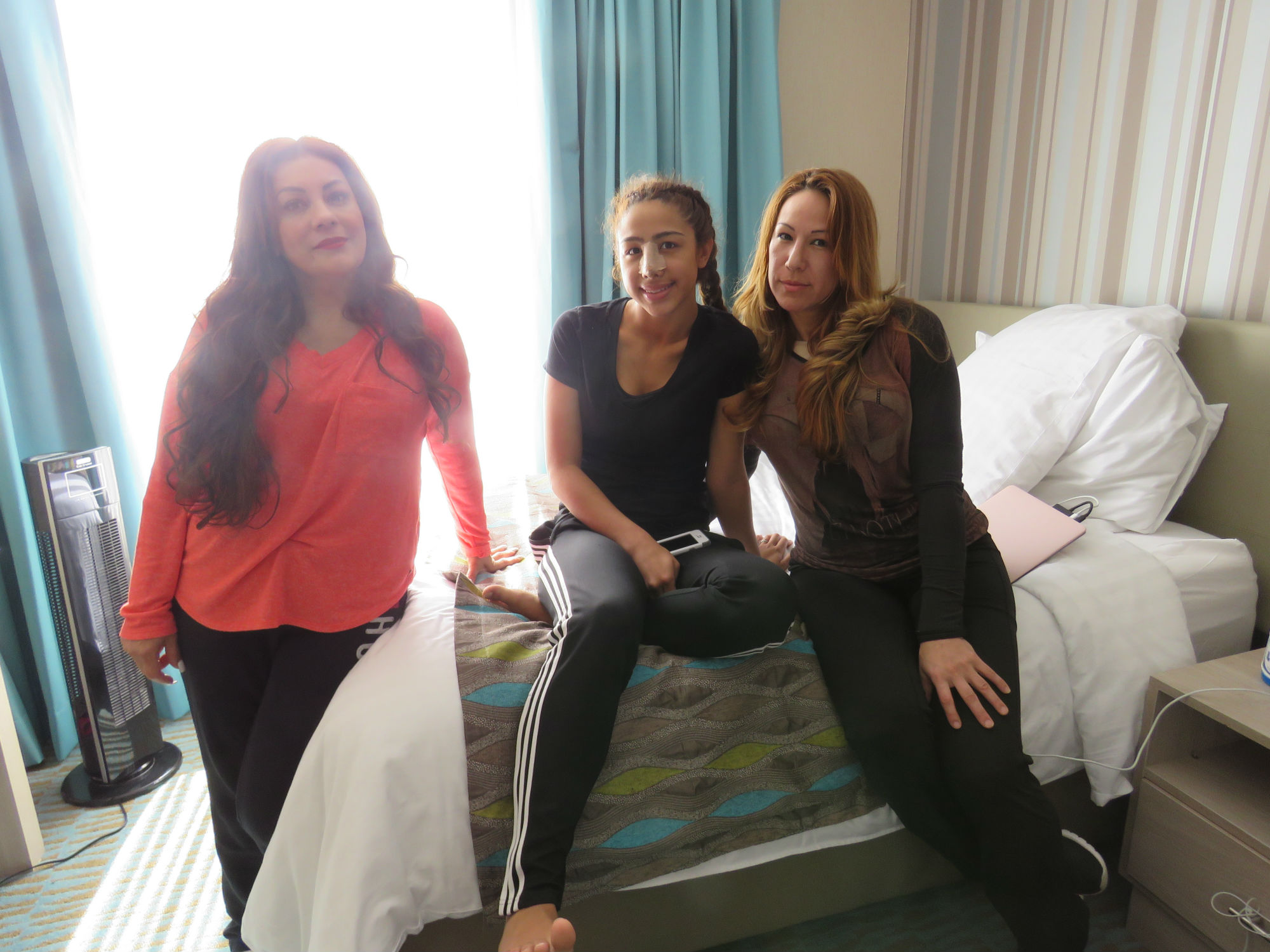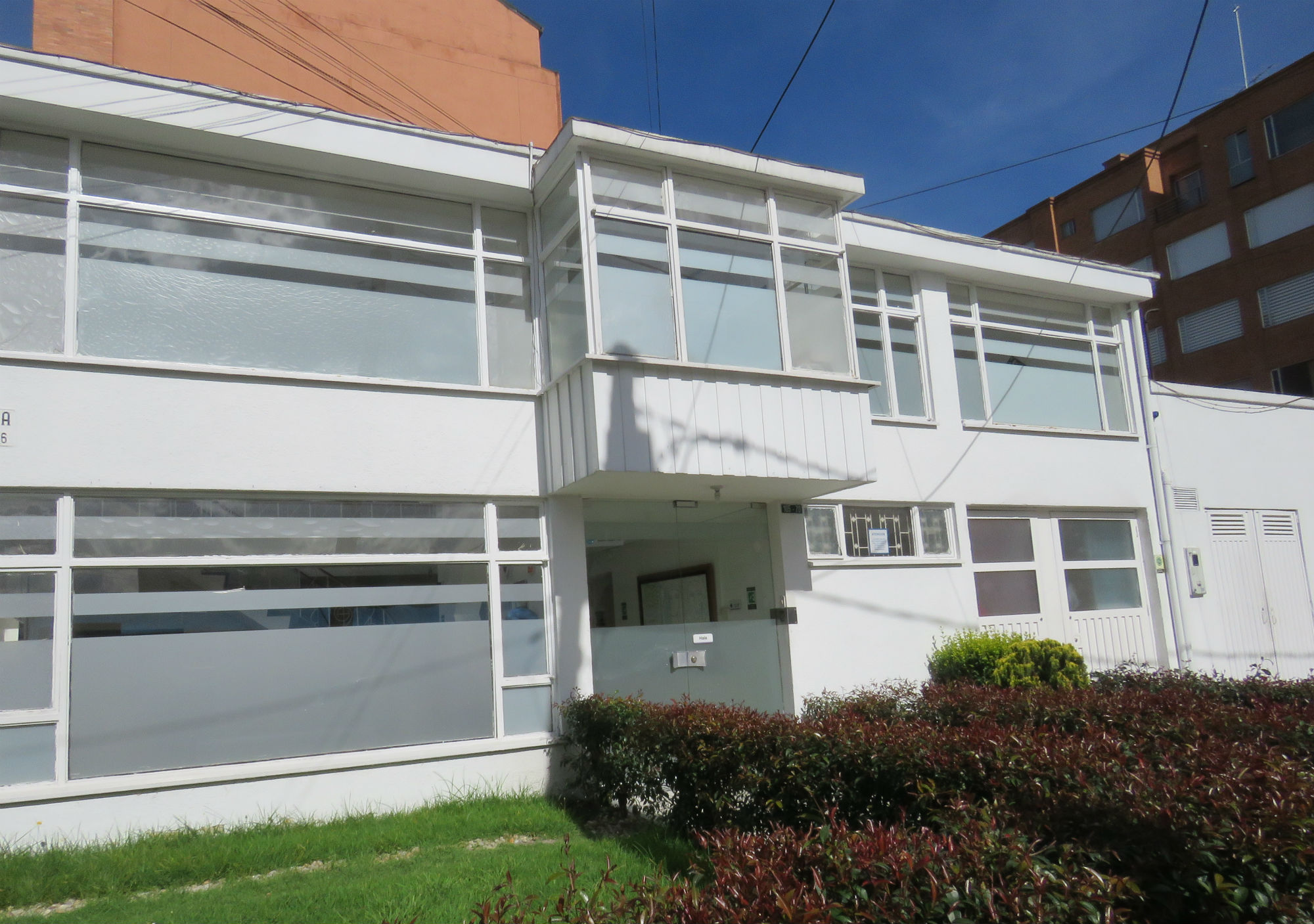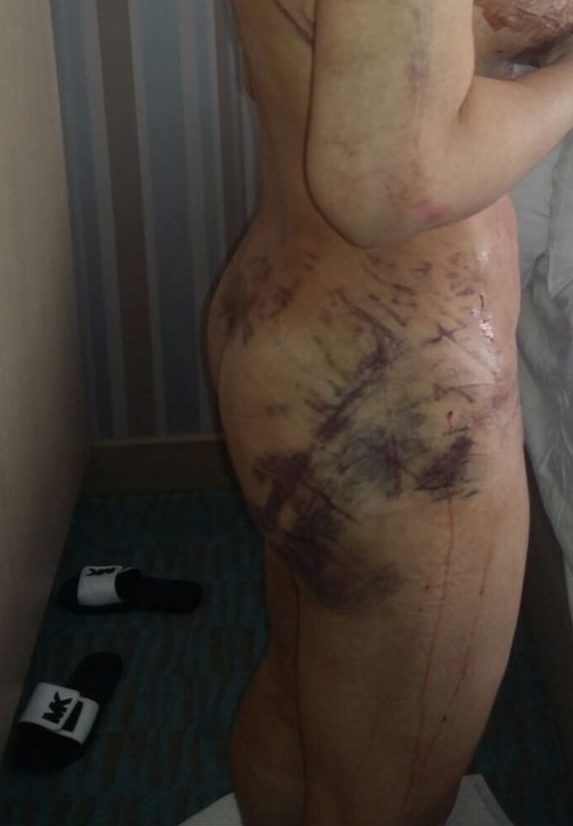Introduction: "The Nightmare"
Salgado was wearing slacks and a long-sleeved shirt, but peeling a pant leg back revealed a compression garment, one of several covering her whole body. Underneath the compression garments, Salgado’s skin was black and blue.
In the summer of 2017, Salgado had traveled from her U.S. home to Bogota to receive laser liposuction, breast implants and a facelift from a doctor in Colombia billing himself as a certified plastic surgeon. She said she thinks her doctor must have nicked one of her ribs with the liposuction needle during the operation.
Angered by the experience and crippled by the residual pain from her liposuction, Salgado had sought medical help from Barbosa, a leading plastic surgeon in Bogota and an ardent advocate for strengthened rules governing the profession in Colombia. Barbosa and other certified plastic surgeons are routinely approached by patients seeking corrective treatment following slip-shod surgeries by less skilled or unscrupulous surgeons.
Like Salgado, Fernandez was in compression garments and clutched the armrests of the waiting room’s steel chair whenever she made stiff adjustments. Naomi wore a bandage over the bridge of her nose and breathed through her mouth.
“When I had this done, it was a nightmare,” said Salgado.“Just terrible.”
A friend from New Jersey had undergone plastic surgery with the same Colombian doctor and had recommended him to Salgado. The timing happened to be convenient for Naomi, who was a few months short of turning 18 and being legally allowed to have her nose operation done in the U.S. Naomi didn’t want to have the surgery while starting university in the fall; the timing — not to mention the price — was better in Colombia.

“There you go,” Fernandez recalled thinking. “That’s my dream. That’s what I want.”
The three medical tourists from New Jersey decided to go ahead with their surgeries. The operations were to be carried out in a wealthy neighbourhood in Bogota, but upon the arrival of the Americans at the location, the clinic was not what they had expected.
“It’s just like a house. It doesn’t even have a sign. You have to ring a bell just so they can open the door,” said Fernandez. Despite the warning signs, the cousins apprehensively went ahead with their procedures.

Salgado thought this was suspicious but felt pressured to have the surgery anyway since she had already paid. She suggested to Fernandez that she and Naomi should have their operations elsewhere, but in what Fernandez admitted was a lapse in judgment, she underwent the surgery too.
While Salgado was still anesthetised, the clinic began her daughter’s rhinoplasty in another room without her mother being present. “If something happened, what were they going to do?” asked Salgado. “She’s a minor!”
Salgado woke from her surgery screaming in pain. She remembers her doctor assuring her everything was fine.
Fernanadez later discovered that the doctor she had been consulting with in Colombia before her surgery was not the same one who actually performed the operations. “You should meet the doctor that’s doing your operation. It’s just wrong,” she said. “I feel betrayed.”
Salgado’s daughter Naomi came away from her rhinoplasty without complications, although her mother wasn’t entirely impressed by the aesthetics. Worried and suffering pain in the aftermath of their procedures, Salgado and Fernandez turned to Barbosa, whose credentials were impeccable.

A degree of bruising is normal after a liposuction, but Salgado was falsely informed about the procedure. (Photo| Monica Salgado)
Explosive consumer demand for cosmetic procedures and lax medical regulations have combined to foster an unscrupulous branch of the industry, brimming with underqualified surgeons and unhygienic clinics performing — sometimes very badly, but for cut-rate prices compared to North America — what is often highly invasive surgery.
The issue sparked public outrage in 2016 when the story of Lorena Beltrán, a journalist and victim of a botched breast reduction, appeared across major Colombian media outlets. After investigating the surgeon that had left Beltrán with disfigured breasts, the high-profile Colombian newscast Noticias Uno exposed 40 doctors who had obtained “express” plastic surgery specialties in other countries and had their credentials verified through a medical oversight system rife with government corruption.
Beltrán has since been spearheading the Cirugía Segura Ya (Safe Surgery Now) movement that promotes solidarity among victims of malpractice and raises awareness about the serious shortcomings of plastic surgery regulation in Colombia.
Salgado, her daughter and cousin unwittingly took a wrong turn when they went to Colombia for their plastic surgeries, falling into the hands of medical amateurs operating on the dark side of a booming business.
“It’s been a nightmare,” said Fernandez. “For this doctor, I wish the best for him — that nobody dies on him.”